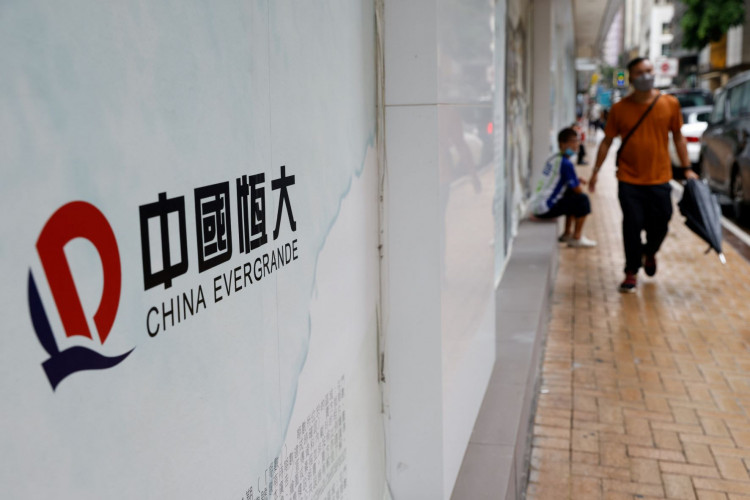The second-largest shareholder of embattled Chinese real estate developer, China Evergrande, has expressed its intention of offloading its entire stake. Chinese Estates Holdings said Thursday that it may exit the holding company completely.
Chinese Estates Holdings confirmed that it had already sold some of its stake in China Evergrande worth around $32 million. The company said in a filing with the Hong Kong Stock Exchange that its directors are becoming increasingly concerned with the state of China Evergrande, particularly its recent disclosure about its liquidity.
As of Sept. 10, Chinese Estates Holdings had owned around a 6.5% stake in China Evergrande's equity capital. The company said it had mandated the sale of part of the stake through block trades and the open market. The company said the disposal mandate will become effective following its shareholders' meeting Thursday.
The company said it had already sold 108.91 million China Evergrande shares, which represents about 0.82% of the developer's issued capital between Aug.30 and Sept. 21. The sale is estimated to be worth about HK$246.5 million ($32 million).
If it pushes through with the sale of its entire stake in China Evergrande, Chinese Estates Holdings estimates that it will incur a loss of about $1.22 billion based on its initial acquisition of the stakes. The company said proceeds from the sale will be used for general working capital and for future investments when more opportunities are available.
China Evergrande has an estimated $305 billion in liabilities. The company is struggling to meet its debt payments, which have raised concerns about its future prospects. Investors also fear that its financial woes could spread to its creditors, which include major banks in China and overseas.
Following its announcement, share prices of Chinese Estates Holdings surged by more than 15.1% to HK$2.51 per share Thursday. The surge was the largest daily percentage gain for the stock since June 2020.
On Wednesday, China Evergrande's stock surged by more than 32% after the company announced that it had "resolved" a coupon payment on one of its onshore bonds. The increase was its largest daily percentage rise since its listing in November 2009.





